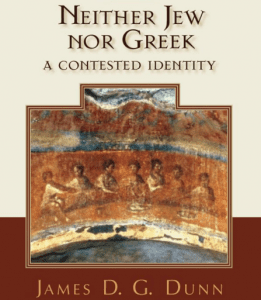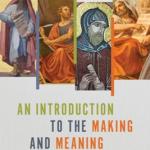 Well, I didn’t get to attend the Historical Jesus conference last weekend led by Chris Keith and Anthony LeDonne, but I’ve seen a couple reports taking me to task for my view, which was part of the book published, though I’m not sure the posts are taking my definitions seriously enough, so let me clarify. I do realize my view of historical Jesus studies is contrarian, but it’s hardly new. It’s a bit like Martin Kähler and a bit like Jimmy Dunn, but not identical to either.
Well, I didn’t get to attend the Historical Jesus conference last weekend led by Chris Keith and Anthony LeDonne, but I’ve seen a couple reports taking me to task for my view, which was part of the book published, though I’m not sure the posts are taking my definitions seriously enough, so let me clarify. I do realize my view of historical Jesus studies is contrarian, but it’s hardly new. It’s a bit like Martin Kähler and a bit like Jimmy Dunn, but not identical to either.
What I say emerges from my own work in historical Jesus studies, and you can read my own approach to historiography in Jesus and His Death: Historiography, the Historical Jesus, and Atonement Theories, published by Baylor University Press. It also emerges from more than five years of working in the Historical Jesus Seminar of the SBL at the Annual Meetings.
Point 1: My contention is that historical Jesus studies are all about reconstructing what Jesus was really like. They are the attempt to get behind the Gospels (and the Creed) to the real Jesus, the one who walked and taught and ministered in the Galilee and Judea.
Point 2: My contention is further that this reconstruction occurs over against the church’s Jesus, which is found in the Gospels (four presentations, not four “gospels” — not four “Jesuses” either, but four gospels presenting the Story of the one Jesus in four ways) and then developed even more in the Creed. The point of departure for historical Jesus studies is that the church either got Jesus wrong or said too much. The historical Jesus will be the real Jesus over against the church’s more theologized Jesus.
If you don’t accept these two premises, we have no discussion. If you do, we’ve got one. Again: it’s about reconstruction over against what the church thinks. Historical Jesus studies are decidedly contrarian to orthodoxy and the church and even the Gospels, if I may say so, and that is why they subject the church’s Jesus to criticism.
Point 3: And my contention is that historical Jesus studies, because it is all about reconstructing Jesus over against what the church has always believed, are of no use to the church. Why? Because the church knows what it believes about Jesus: The Gospels are the first source and then the Creed will be the second source for what the Church believes. [I want to avoid the Creed vs. Canon debate for this post because I’m intent on explaining what it means to do “historical Jesus studies.”]
My contention is not that it is impossible to do historical Jesus studies — in other words, I do think historical methods, when folks stick to the methods, can discover what the method permits for discovery. (That’s the historical Jesus as reconstructed on the basis of methods, and my Jesus and His Death is that kind of historical Jesus book.) Some have said it is impossible to do historical Jesus studies because we don’t have any brute facts to interpret in another way. I disagree; I do think the methods are useful for historical purposes.
Point 4: My contention, further, is that “examining the Jesus of the Gospels [canonical Jesus] in his Jewish context” is not the same as “historical Jesus studies.” Canonical Jesus study sets an interpreted Jesus [canonical Jesus] in his Jewish context while historical Jesus study gets behind the canonical Jesus to the (less interpreted) real Jesus and sets that reconstructed figure in his historical context. I’m all for historical study of the canonical Jesus.
Point 5: And my contention is that the Gospels are already interpretations of Jesus, that is, the Gospel writers were “historians” in some sense and strung together facts about Jesus into a narrative that was designed to “gospel” Jesus to its readers. That is the church’s Jesus, the canonical Jesus, and that is the Jesus the church believes in. The creedal Jesus develops the canonical Jesus, and even if many think the creedal Jesus said too much, that does not change that the creedal Jesus is also the church’s Jesus.
If the church opts for the historical Jesus, it must choose to disregard the canonical Jesus for a reconstruction of Jesus on the basis of historical methods.















